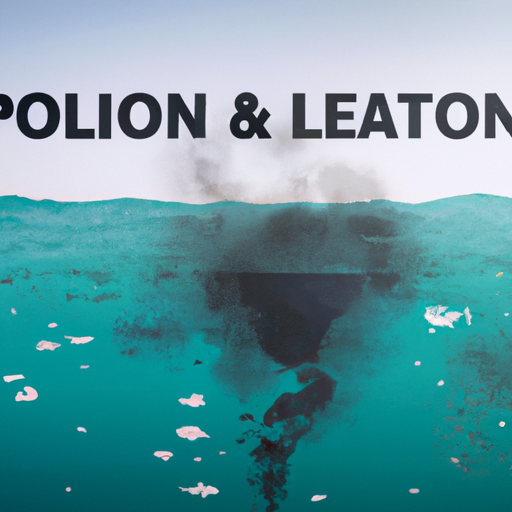-
Table of Contents
Who causes marine pollution?

Marine pollution is a significant environmental issue that affects the health and well-being of our oceans and the diverse marine life that inhabits them. It is caused by various human activities and natural factors. In this article, we will explore the main culprits behind marine pollution and their detrimental effects on the marine ecosystem.
Marine Pollution Culprits
1. Plastic Waste: Plastic pollution is one of the most pressing issues facing our oceans today. The improper disposal of plastic waste, such as bottles, bags, and microplastics, leads to their accumulation in the marine environment. These plastics take hundreds of years to decompose, causing harm to marine life through ingestion and entanglement.
2. Chemical Runoff: Industrial and agricultural activities contribute to marine pollution through the release of chemicals and pollutants into rivers and streams. These contaminants eventually find their way into the ocean, causing harm to marine organisms and disrupting the delicate balance of marine ecosystems.
3. Oil Spills: Accidental oil spills from ships and offshore drilling operations have devastating effects on marine life. Oil spills coat the feathers and fur of marine animals, making it difficult for them to swim or fly. The toxic chemicals in oil can also contaminate the water, leading to long-term damage to marine habitats.
4. Sewage and Wastewater: Improperly treated sewage and wastewater discharge from coastal cities and industries introduce harmful pathogens and pollutants into the marine environment. These contaminants can lead to the spread of diseases among marine organisms and cause eutrophication, leading to oxygen depletion and the death of marine life.
Ocean Contaminators
1. Heavy Metals: Industrial activities, such as mining and manufacturing, release heavy metals like mercury, lead, and cadmium into the ocean. These metals accumulate in the tissues of marine organisms, leading to bioaccumulation and biomagnification in the food chain. This poses a significant threat to the health of marine life and can ultimately affect human health through the consumption of contaminated seafood.
2. Chemical Discharges: The discharge of chemicals from industries, including pesticides, fertilizers, and pharmaceuticals, can have detrimental effects on marine ecosystems. These chemicals can disrupt the reproductive systems of marine organisms, impair their immune systems, and even cause genetic mutations.
3. Acidification: The increased concentration of carbon dioxide in the atmosphere leads to ocean acidification. This phenomenon occurs when the excess carbon dioxide dissolves in seawater, resulting in a decrease in pH levels. Ocean acidification poses a significant threat to marine organisms, especially those with calcium carbonate shells, such as corals and shellfish.
Sea Life Threats
1. Overfishing: Overfishing is a major threat to marine life and the overall health of the oceans. Unsustainable fishing practices, such as trawling and dynamite fishing, deplete fish populations and disrupt marine ecosystems. This not only affects the targeted species but also has cascading effects on the entire food web.
2. Invasive Species: The introduction of non-native species into marine ecosystems can have devastating consequences. Invasive species can outcompete native species for resources, disrupt the balance of the ecosystem, and even cause the extinction of native species. Ballast water discharge from ships is a common pathway for the introduction of invasive species.
3. Coral Bleaching: Rising ocean temperatures due to climate change have led to widespread coral bleaching events. When corals are stressed by high temperatures, they expel the symbiotic algae living in their tissues, causing them to turn white. Coral bleaching not only affects the beauty of coral reefs but also disrupts the entire ecosystem that relies on them.
In conclusion, marine pollution is primarily caused by human activities such as plastic waste, chemical runoff, oil spills, and sewage discharge. These culprits, along with ocean contaminators like heavy metals, chemical discharges, and acidification, pose a significant threat to marine life. Additionally, threats such as overfishing, invasive species, and coral bleaching further exacerbate the degradation of marine ecosystems. It is crucial for individuals, industries, and governments to take immediate action to reduce marine pollution and protect the health and biodiversity of our oceans.